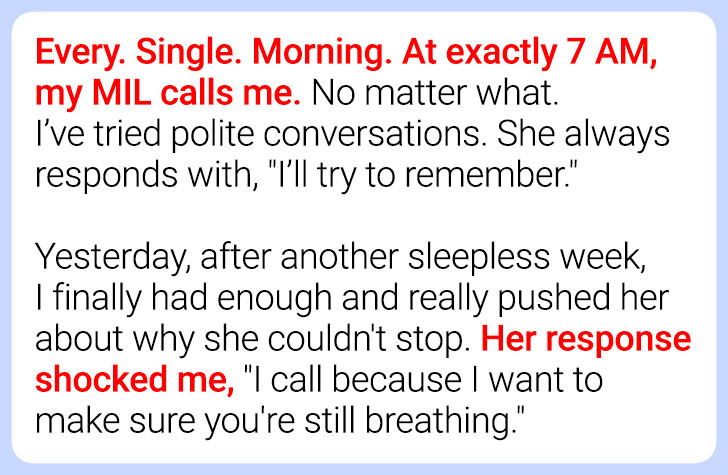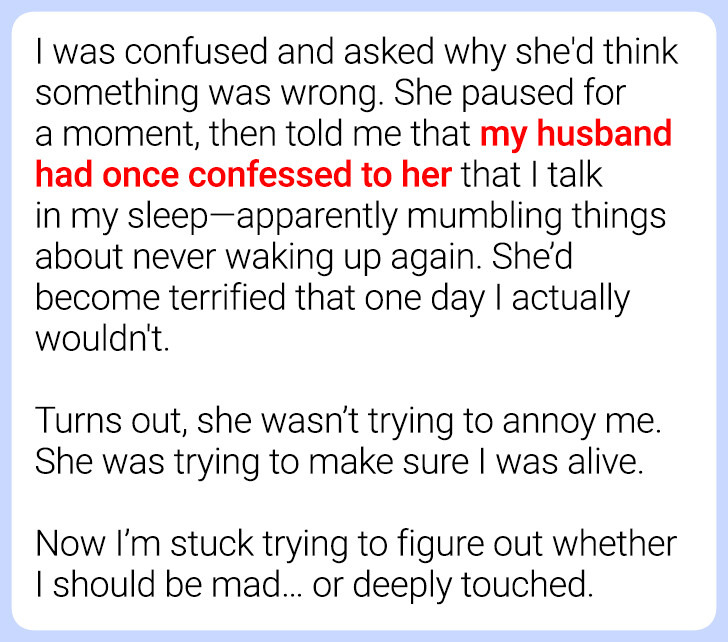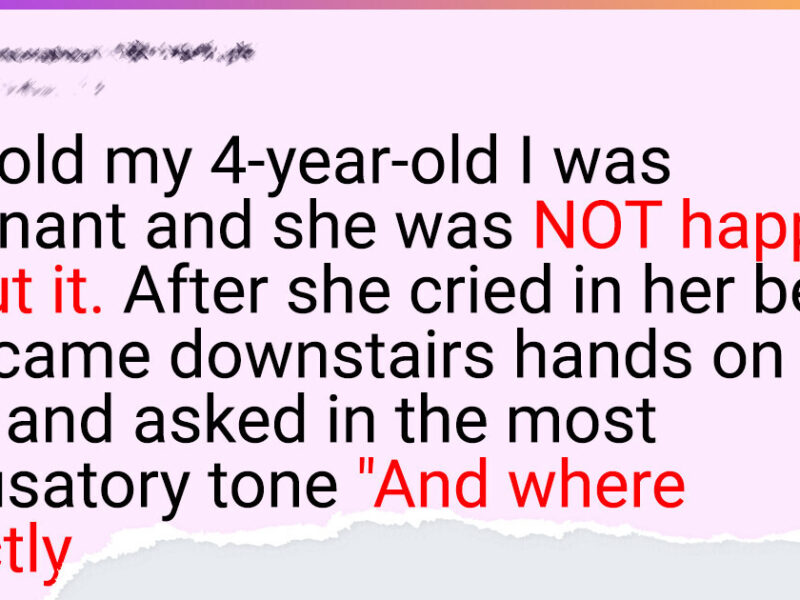My MIL Calls Me Every Day at 7 AM and Ruins My Life / Bright Side
Recently, one of our readers encountered a challenging situation with her mother-in-law that left her feeling exhausted. Here’s her story.
CONTENT IS PROVIDED FOR INFORMATIONAL PURPOSES ONLY AND IS NOT INTENDED AS A SUBSTITUTE OF MEDICAL ADVICE. SEEK GUIDANCE OF YOUR DOCTOR REGARDING YOUR HEALTH AND MEDICAL CONDITIONS.

However, this is not the end of the story. What followed was even more surprising for our reader, as she uncovered unexpected reasons behind her mother-in-law’s behavior that changed her perspective entirely. The situation took a twist that left her both shocked and reflective, proving that sometimes, there’s more to a story than meets the eye.

In the end, our reader suggested that her mother-in-law call her only when she was awake, which would allow her to get the sleep she desperately needed. Additionally, she asked her husband to reach out to his mother on Sundays, as soon as he woke up earlier than she did. This compromise not only helped restore some peace to her mornings but also opened the door for healthier communication within their family.
What to avoid while dealing with anxious people.
- When helping someone with anxiety, it’s natural to want to protect them from things that make them anxious. While this may seem kind, it can actually make their anxiety worse. If they always avoid difficult situations, their fears grow stronger, and they might ask for even more help to avoid them.
- By constantly changing your actions or surroundings to make them feel better, you may unintentionally allow the anxiety to get worse. Avoiding challenges doesn’t help them learn how to manage their fears. Instead, their world can shrink, as anxiety limits more and more of what they feel they can do.
- On the flip side, forcing someone to face something they’re afraid of isn’t helpful, either. Pushing a person who’s not ready can harm your relationship, says McGuire, a pediatric psychologist. It’s better to let a professional therapist guide them through overcoming their fears. This takes the pressure off you and allows your loved one to gradually confront their anxiety with expert support, one step at a time.
Use anxiety tips that work.
To help someone with anxiety, focus on love and acceptance. Here’s one effective approach:
- Avoid belittling their feelings, as comments like, “I can’t believe you’re upset over that,” can be hurtful. Instead, ask how you can support them during tough moments. Remember, their anxiety may not make sense to you, but it’s important to acknowledge that what they’re experiencing is real and deserves sensitivity. For example, you might say, “I noticed you’ve been avoiding social gatherings. Can you tell me what’s going on?” This opens the door for a supportive conversation.
- When someone is stressed or anxious, they often replay their thoughts repeatedly, so by the time they talk to you, it may come out as a rant or even an attack. Remember, this outburst isn’t about you.
- To help, let them express what’s been on their mind without interrupting. Just stand there, listen, and occasionally acknowledge them to show you’re paying attention. They simply need to vent, and if they want your input, they’ll ask for it.
Here are some more useful tips on psychology and communication that you might find helpful.



